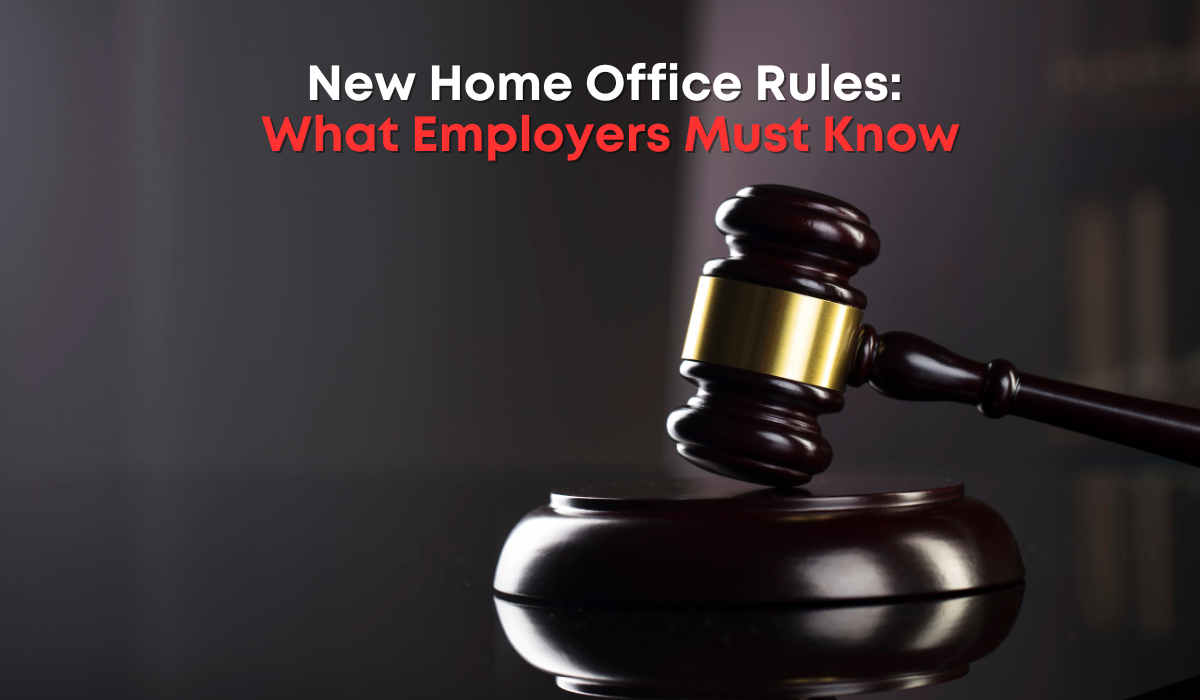In a significant shift, the UK Home Office has issued revised guidance that will profoundly impact how businesses handle sponsorship costs for overseas employees. Effective from 31 December 2024, the rules tighten restrictions on recouping sponsorship fees from sponsored workers, with strict penalties for non-compliance. Here, we explore the key details, the motivations behind the changes, and their implications for businesses.
What Does the New Home Office Guidance Say?
Under the updated guidelines, the Home Office will normally revoke a sponsor licence if an employer:
- Assigns a Certificate of Sponsorship (CoS) to a sponsored employee and subsequently:
- Requires the employee to pay some or all of the CoS fee; or
- Attempts to recoup these costs from the employee.
- Applies for a sponsor licence (or amends an existing licence to sponsor Skilled Worker Visa applicants) and:
- Requires a sponsored employee to pay some or all of the sponsor licence fee or associated administrative costs; or
- Attempts to recover these costs from the employee.
The guidance explicitly extends to priority fees paid by businesses for faster processing of licence applications but excludes the immigration skills charge, as recoupment of this fee was already prohibited.
Why Has the Home Office Tightened the Rules?
The new guidance stems from growing concerns about the exploitation of overseas workers. Some employers have reportedly placed employees in “visa debt,” leaving them vulnerable and unable to leave their roles without financial penalties. The government has been particularly alarmed by abuses in the care sector, where Health and Care Worker Visa holders have faced exploitative conditions.
Additionally, the changes align with broader government objectives to:
- Reduce dependency on overseas labour by encouraging UK businesses to train and recruit from the domestic workforce.
- Address systemic issues in sectors like care, where reliance on international recruitment has been flagged as problematic.
Is the Ban on Recoupment Fair?
At face value, prohibiting the recovery of sponsorship fees appears equitable. Employers are generally better positioned to absorb these costs than their employees. However, this perspective merits closer scrutiny:
- Double Standards: Employers routinely recoup training costs from UK employees who leave after receiving company-sponsored training. Why should sponsorship costs for overseas workers be treated differently?
- Systemic Failures: Businesses often turn to international recruitment due to skill shortages within the UK. Penalising employers for covering sponsorship costs fails to address underlying issues in education and training.
- Employee Autonomy: Some overseas workers may prefer to bear part of the sponsorship costs as a trade-off for securing employment and migration opportunities in the UK. Denying this option could limit their choices.
Practical Implications for Businesses
For companies navigating the revised guidance, compliance is paramount to avoiding severe consequences, including the revocation of sponsor licences. Here’s what businesses need to consider:
- Policy Adjustments:
- Review recruitment policies and employment contracts to ensure no prohibited recoupment practices are included.
- Amend existing agreements to align with the updated guidance.
- Training HR Teams:
- Educate HR and key personnel about the new rules to prevent unintentional breaches.
- Financial Planning:
- Reassess recruitment budgets to absorb sponsorship costs without passing them on to employees.
- Audits and Compliance:
- Conduct internal audits to identify and rectify any historical practices that may conflict with the guidance.
Risks of Non-Compliance
Failing to adhere to the new rules carries significant risks, including:
- Licence Revocation: This would terminate a company’s ability to sponsor employees, disrupt existing operations, and cause reputational damage.
- Employee Retention: Sponsored workers may leave for competitors with compliant licences, exacerbating staff shortages.
- Reapplication Challenges: Businesses may face increased scrutiny or extended waiting periods when applying for a new licence after revocation.
A Call for Balanced Reform
While the government’s commitment to protecting overseas workers is commendable, the new guidance raises important questions about fairness and practicality. Employers face growing costs and administrative burdens while grappling with skills shortages. Policymakers must strike a balance between safeguarding worker rights and supporting businesses in addressing labour market demands.
Legal Support for Sponsor Licence Holders
In this evolving landscape, expert legal guidance is indispensable. Businesses must remain proactive in ensuring compliance while addressing their recruitment needs. Immigration solicitors can provide tailored advice, including:
- Pre-licence audits to assess readiness for sponsor licence applications.
- Full sponsor licence management services, including compliance training and risk mitigation strategies.
- Representation in judicial reviews or appeals related to licence suspensions or revocations.
At a time when the stakes are higher than ever, investing in professional advice could be the difference between thriving and struggling under the new regulations.
The Home Office’s revised recoupment guidance underscores the complexities of sponsoring overseas workers in the UK. By understanding the rules and taking proactive steps, businesses can navigate these changes effectively while safeguarding their operations and reputation.
Get in touch: For a comprehensive understanding of your options or queries on UK immigration matters, contact GigaLegal Solicitors at 02074067654 or click here to book a no-obligation consultation with an immigration expert.


